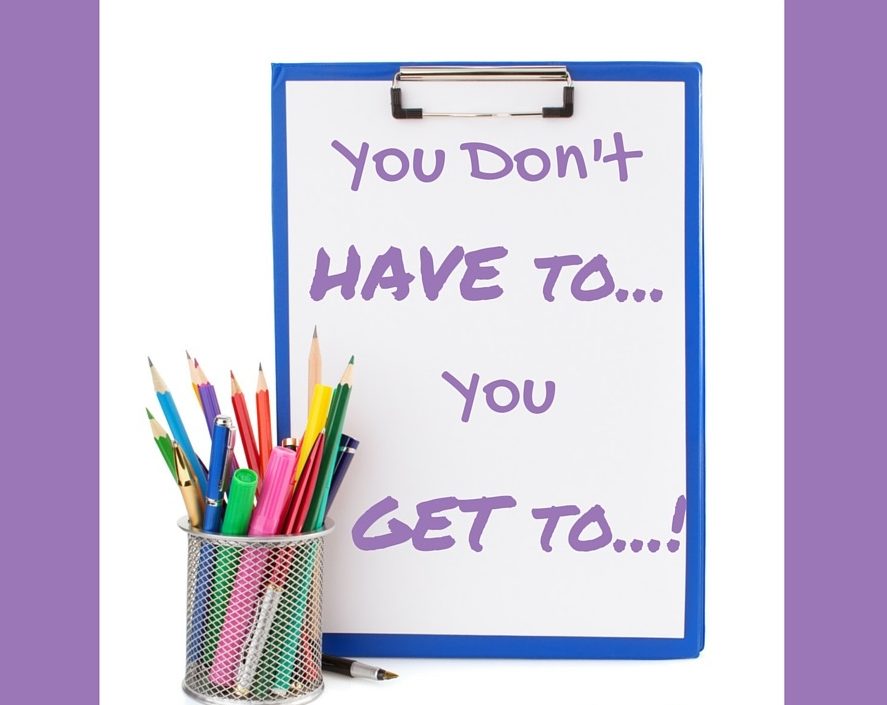 Using effective teacher language can change the way students respond to you and may increase their motivation. The words we choose convey a message to our listener that can negatively or positively impact how students will perceive a task.
Using effective teacher language can change the way students respond to you and may increase their motivation. The words we choose convey a message to our listener that can negatively or positively impact how students will perceive a task.
Consider the simple words “have to” and “get to.”
By replacing “have to…” with “get to…” in your daily language, you can send a subtle but very different tone and message to your listener. With this word substitution, you can easily change a negative connotation into a positive statement.
Here are some examples of how you can dramatically alter the tone of your conversations with students by substituting the word get for the word have:
“You have to read this book.”
This phrase sends the message that it is an unpleasant obligation to read the book. We don’t generally like to be told we have to do something.
“You get to read this book. ”
This phrase implies that implies that reading this book is a privilege or honor. The book sounds much more interesting if it is something we get to read.
“You have to work together.”
When you hear this, you instantly think that there are downfalls when working in a group. It is not going to be a fun or pleasant experience.
“You get to work together.”
When we get to work together, we are being given a privilege, something we will want to do and choose to do. Most students enjoy working with others, so why not choose words that make it sound positive?
“We have to work through this content.”
When you use this phrase, it sounds like even you don’t like this content and are doing it begrudgingly.
“We get to work through this content.”
This sounds much less brutal and implies that the content is something worthwhile.
“You have to show your work.”
When you tell students that they have to show their work, they hear that this is another unpleasant task. It is just one more thing they have to do. Expect student groans.
“You get to show their work.”
If you get to show your work, there is something positive in it for you. Perhaps you get some points for an incorrect answer if you have correctly done some of the steps. Perhaps the teacher will be better able to understand what you are thinking and give you better feedback. This phrase gives the impression that students have the opportunity to let the teacher understand what they are thinking.
You can also use this word substitution to correct students when they speak. When a student states that they “have to” do a task, you can reply that “Yes, you get to do the task.”
If this still seems like only a silly word change, try this one out for yourself:
“I have to go to work tomorrow” versus “I get to go to work tomorrow.”
Which one is more positive? When you have to go to work, you dread it. When you get to go to work, you are reminded that you were chosen for your job over others who did not get the job. You have students who need you and an administrator that trusted their care to your capable hands. You are fortunate to have a job where you can use your skills in an impactful way. Not everyone is that fortunate.
Effective teacher language is often just a matter of paying attention to the words you choose. Once you are aware of the power of this language substitution you will catch yourself and others when they say they “have to” do something versus when they “get to” do something. You will be amazed by how quickly this transforms the conversations you have with learners and with other adults.
You don’t “have to” try this out, but we certainly hope you “get to.”
Our best,


Leave a Reply